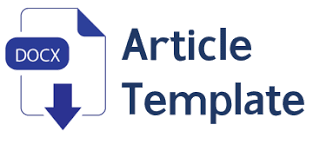Integrasi Prinsip Deep Learning Dalam Implementasi Kurikulum Merdeka: Analisis Tantangan Dan Strategi Inovatif Di Pendidikan Indonesia
DOI:
https://doi.org/10.010125/y280m209Keywords:
Deep Learning, Kurikulum Merdeka, Robustness, Interpretability, Student-Centered Learning, Educational ReformAbstract
The rapid advancement of deep learning over the past decade has generated significant breakthroughs across various domains, including computer vision, natural language processing, and robotics. Despite its success, several scientific gaps remain, particularly regarding robustness, interpretability, scalability, and multi-modal integration. At the same time, Indonesia is undergoing an educational transformation through the implementation of the Kurikulum Merdeka (Independent Curriculum), which emphasizes student autonomy, personalized learning, and contextualized pedagogy. Philosophically, these principles align with the notion of “deep learning” in education—learning that is mindful, meaningful, and sustainable. However, challenges such as teachers’ limited readiness, unequal infrastructure, and inconsistent implementation across schools hinder the realization of these ideals. This study employs a library research method with a qualitative descriptive approach, relying on document analysis of scholarly literature, policy documents, and empirical studies. Data analysis follows content analysis procedures to identify, categorize, and interpret themes related to deep learning’s technological and pedagogical dimensions. Findings highlight that while deep learning technologies require more robust, transparent, and resource-efficient designs, their educational parallel—deep, reflective learning—faces constraints in teacher training, assessment practices, and local contextualization. To address these challenges, the study proposes strategies for integrating deep learning principles into Kurikulum Merdeka through systematic teacher capacity-building, student-centered learning approaches, blended learning models, authentic assessment, and cross-disciplinary collaboration. Theoretically, this research contributes to the interdisciplinary discourse linking artificial intelligence and curriculum reform. Practically, it provides recommendations for enhancing teacher competencies, instructional models, and policy support to ensure that the integration of deep learning fosters effective, high-quality, and sustainable education in 21st-century Indonesia.
Downloads
References
Adam Sugiarto, & Sutikno. (2022). Pengaruh Kompetensi Profesional Guru Dan Penggunaan Metode Ummi Terhadap Kemampuan Membaca Al-Qur’an Siwa, 3, 150–163. Retrieved from https://ejurnal.darulfattah.ac.id/index.php/Annaba
Abidah, A., Nuur, M., Hanifah, S., & Hidayatullah, H. (2024). Challenges of implementing the Merdeka Curriculum: Teacher readiness, parental involvement, and infrastructure. Journal of Educational Innovation, 12(2), 115–129.
Ahmad. (2025). Reflektifitas administrasi pendidikan dalam implementasi Kurikulum Merdeka. Jurnal Pendidikan Nasional, 14(1), 45–58.
Bhardwaj, A., Jain, R., & Sharma, S. (2020). Deep learning approaches for IoT and edge computing: Challenges and future directions. IEEE Internet of Things Journal, 7(5), 4458–4470. https://doi.org/10.1109/JIOT.2020.2968956
Bowen, G. A. (2009). Document analysis as a qualitative research method. Qualitative Research Journal, 9(2), 27–40. https://doi.org/10.3316/QRJ0902027
Braun, V., & Clarke, V. (2006). Using thematic analysis in psychology. Qualitative Research in Psychology, 3(2), 77–101. https://doi.org/10.1191/1478088706qp063oa
Chen, H., Li, Y., & Wang, Q. (2023). Quantum deep learning: Opportunities and challenges. Journal of Computational Science, 65, 101912. https://doi.org/10.1016/j.jocs.2022.101912
Creswell, J. W., & Poth, C. N. (2018). Qualitative inquiry and research design: Choosing among five approaches (4th ed.). Sage.
Darussalam, D., & Toyyibah, T. (2024). Teacher readiness and instructional challenges in the Merdeka Curriculum. Indonesian Journal of Curriculum Studies, 11(1), 33–49.
Denzin, N. K. (2017). The research act: A theoretical introduction to sociological methods. Routledge.
Fathimah, S. (2025). Social constructivism and local wisdom in the Merdeka Curriculum. Journal of Islamic Education, 9(1), 21–38.
Flick, U. (2018). An introduction to qualitative research (6th ed.). Sage.
Gibson, P., & Cano, E. (2020). Optimizing deep learning inference for edge devices. Journal of Parallel and Distributed Computing, 137, 85–95. https://doi.org/10.1016/j.jpdc.2019.12.008
Hartoyo, H. (2025). Sejarah Peradaban Islam. Meta Nusantara. Blora: Meta Nusantara
Iliyasu, A. M., Ho, E. S. L., & Pang, Y. (2022). Towards interpretable encrypted traffic classification using deep learning. IEEE Access, 10, 15342–15355. https://doi.org/10.1109/ACCESS.2022.3143342
Krippendorff, K. (2019). Content analysis: An introduction to its methodology (4th ed.). Sage.
Kusasi, M. (2024). Differentiated instruction in the Merdeka Curriculum: Potentials and challenges. Jurnal Pendidikan Inovatif, 7(2), 101–117.
Kvale, S., & Brinkmann, S. (2015). InterViews: Learning the craft of qualitative research interviewing (3rd ed.). Sage.
Liu, J., Zhang, T., & Chen, L. (2023). Deep learning for multi-modal and tabular data: A survey. ACM Computing Surveys, 55(12), 1–35. https://doi.org/10.1145/3568964
Mehrtash, A., Wells, W. M., Tempany, C. M., Abolmaesumi, P., & Mousavi, P. (2017). Challenges in clinical adoption of deep learning: A survey of medical image analysis. Journal of Medical Imaging, 4(4), 044501. https://doi.org/10.1117/1.JMI.4.4.044501
Moleong, L. J. (2019). Metodologi penelitian kualitatif. Remaja Rosdakarya.
Muslih, S., Sutikno, S. P. I., & Rinda Fauzian, M. P. (2023). AKHLAK MUSLIM DAN DOA-DOA. Intake Pustaka.
Mustain, M., Karjo, K., & Falah, A. (2025). Tafsir Tarbawi. Meta Nusantara. Blora: Meta Nusantara.
Muchlisin, I. (2025). Psikologi Pendidikan. Meta Nusantara. Blora: Meta Nusantara.
Patton, M. Q. (2015). Qualitative research & evaluation methods (4th ed.). Sage.
Spradley, J. P. (2016). Participant observation. Waveland Press.
Sünderhauf, N., Brock, O., Scheirer, W., Hadsell, R., Fox, D., Leitner, J., … Milford, M. (2018). The limits and potentials of deep learning for robotics. International Journal of Robotics Research, 37(4–5), 405–420. https://doi.org/10.1177/0278364918770733
Sariman, Haryono, E., Wahyudin, M., & Muttaqin, F. Z. (2024). Exploring Research Methodologies Qualitative In Higher Education: Strategies And Approaches For Academic Inquiry. Al Fattah Ejournal Sma Al Muhammad Cepu, 4(01), 74–103. Retrieved from https://www.ejournal.smaamc.sch.id/index.php/belajar/article/view/43
Sariman, Huda, C., & Afif, M. N. (2021). Pengembangan Mutu Peserta Didik dalam Pembelajaran : Implementasi Profesionalisme Guru Madrasah. Jurnal Pendidikan Agama Islam Al-Thariqah, 6(2). https://doi.org/10.25299/al-
Sariman, S. (2025). Transformasi Ekologis Berbasis Spiritualitas: Studi Ekoteologis atas Peran ASN, Masyarakat, dan Gerakan Hijau. MetaNusantara.Com. MetaNusantara.com.
Utami, W., Lestari, N., & Prasetyo, R. (2023). Collaborative learning and project-based approaches in the Merdeka Curriculum. Jurnal Inovasi Pendidikan, 13(2), 89–104.
Yin, R. K. (2018). Case study research and applications: Design and methods (6th ed.). Sage.
Zed, M. (2014). Metode penelitian kepustakaan. Yayasan Obor Indonesia.
Downloads
Published
Issue
Section
License
Copyright (c) 2025 Ahmad Syaifulloh (Author)

This work is licensed under a Creative Commons Attribution 4.0 International License.






